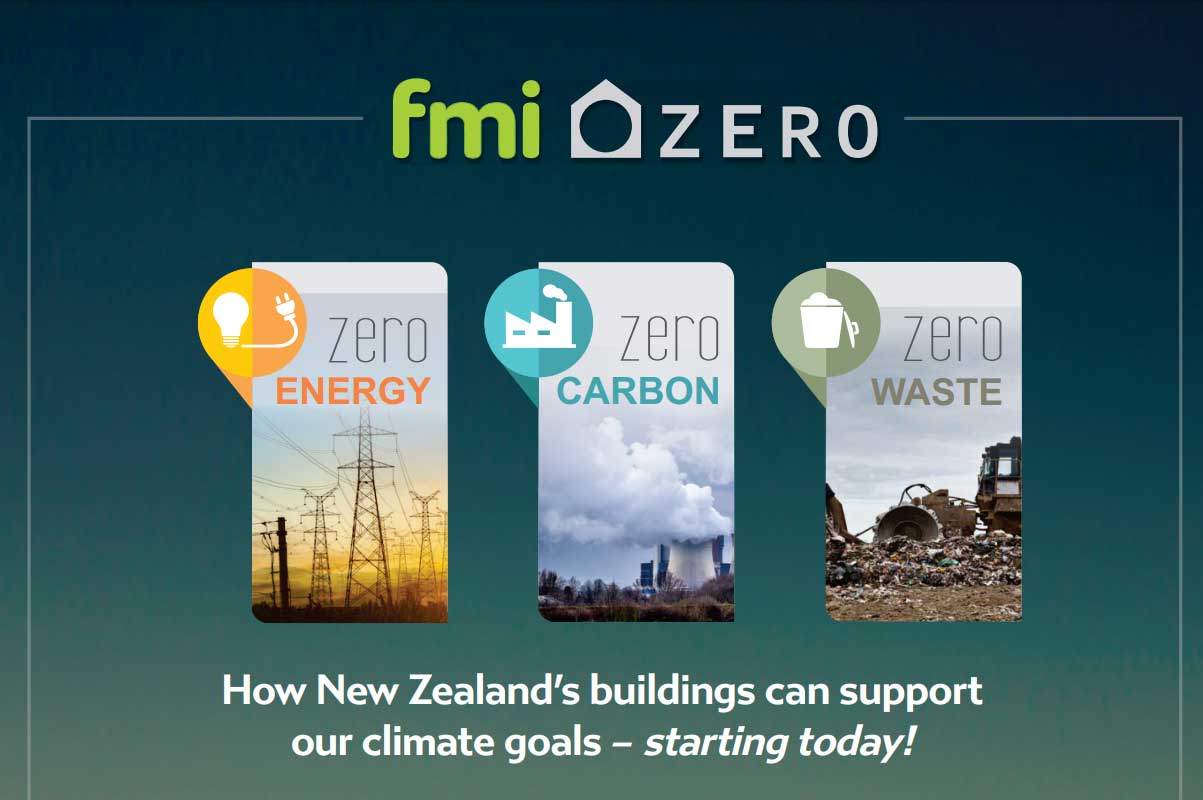
FMI Building Innovation has been investing heavily in R&D, equipment and materials to ensure new-build homes using FMI products and FMI distributors can optimize energy efficiency and achieve significantly lower emissions.
FMI understands that cutting energy use per square metre and generating renewable energy where possible is important but avoiding materials with a high embedded carbon content is also critical.
FMI is constructing a new-build home at the Auckland manufacturing complex that meets the zero energy definition. The house achieves zero carbon through its life by netting off surplus onsite generation, and is delivered with zero waste by reusing, recycling and returning excess building materials to nature. This will give credibility to FMI Building Innovation’s Zero vision.
This home is called “FMI Zero” and is built on the three pillars of FMI Zero Energy, FMI Zero Carbon and FMI Zero Waste. FMI Zero is the lens that guides the company’s development efforts towards homes that are energy efficient, zero-emission, healthy and affordable.
FMI Zero Energy (FMI ZE)
An FMI Zero Energy (FMI ZE) home produces as much renewable energy from solar panels on its roof as its occupants consume over the course of a year. It achieves this net zero balance via a highly energy efficient building envelope combined with the most fit-for purpose appliances. An FMI Zero Energy Ready home (FMI ZER) is an FMI ZE home without the solar panels. Depending on technology and local incentives, surplus energy from the roof may be sold to the grid or stored.
FMI Zero Carbon (FMI ZC)
Over its lifetime, an FMI Zero Carbon (FMI ZC) house creates enough carbon credits from its operation to offset the carbon embodied in its construction and ongoing repair and maintenance. It achieves this net zero balance in part via carbon efficient strategies including initial design, low carbon material selection, and construction waste minimisation. These strategies are complemented by ongoing carbon credits earned from surplus renewable energy generated onsite.
FMI Zero Waste (FMI ZW)
Embodied carbon is wasted throughout the life cycle that builds, maintains, and eventually destroys a house. An FMI Zero Waste (FMI ZW) house construction site reduces embodied carbon by sending nothing to landfill.
Instead, it:
- REUSES leftover materials in subsequent construction.
- RECYCLES packaging and leftover materials back to building suppliers favouring suppliers who can offer this service.
- RETURNS TO NATURE provided materials are non-harmful and organic.
For more information, see the website at: www.fmi.co.nz.
FMI produces Fenestration New Zealand, a bi-yearly magazine addressing various aspects of building sustainability and NZ government legislation. You can request a free copy at [email protected].

